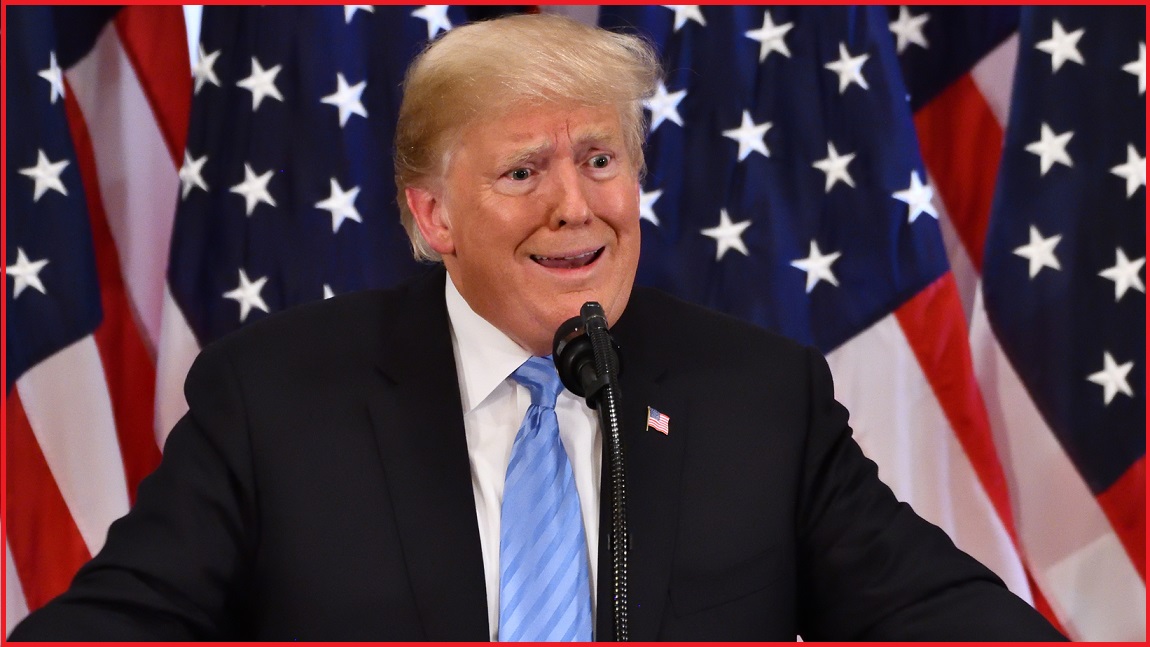US President Donald Trump has criticised Apple for not providing access to the Pensacola shooter’s iPhone, as the tech giant faces another feud with authorities over encryption and privacy.
US Attorney-General William Barr has accused Apple of providing no “substantive assistance” to the FBI’s attempts to gain access to two iPhones used by a 21-year-old man who killed three people in a shooting last month at Pensacola, Florida air force base.
Apple has hit back at the claims, saying it is actively cooperating with authorities and has already handed over large amounts of data from the phones, but that it maintains it will not insert backdoor access to its devices which could be used by nefarious actors.
Trump has now entered the fight, tweeting this week that Apple should be doing more to support law enforcement.
“We are helping Apple all of the time on TRADE and so many other issues, and yet they refuse to unlock phones used by killers, drug dealers and other violent criminal elements. They will have to step up to the plate and help our great country, NOW!” Trump tweeted.
We are helping Apple all of the time on TRADE and so many other issues, and yet they refuse to unlock phones used by killers, drug dealers and other violent criminal elements. They will have to step up to the plate and help our great Country, NOW! MAKE AMERICA GREAT AGAIN.
— Donald J. Trump (@realDonaldTrump) January 14, 2020
Mr Barr has said the FBI has secured court authorisation to search the two iPhones, both of which were damaged but have been fixed by authorities. But the devices are “engineered to make it virtually impossible to unlock without the password”.
Barr called on Apple to “help us find a solution so that we can better protect the lives of American people and prevent future attacks”.
Apple responded by saying it had already provided data that had been backed up from the phones on the iCloud servers and from the account information, amounting to about 5 gigabytes of information.
No way
The tech giant also reiterated its long-held position of not inserting a way to access devices for law enforcement.
“We have always maintained there is no such thing as backdoor just for the good guys,” the company said. “Backdoors can also be exploited by those who threaten our national security and the data security of our customers.
“Today, law enforcement has access to more data than ever before in history, so Americans do not have to choose between weakening encryption and solving investigations. We feel strongly encryption is vital to protecting our country and our users’ data.”
Apple’s stance has been supported by the American Civil Liberties Union.
“The government’s demand is dangerous and unconstitutional, and would weaken the security of millions of iPhones,” ACLU surveillance and cybersecurity counsel Jennifer Granick said.
“Strong encryption enables religious minorities facing genocide, like the Uyghurs in China, and journalists investigating powerful drug cartels in Mexico, to communicate safely with each other, knowledgeable sources, and the outside world.
“There is simply no way for Apple, or any other company, to provide the FBI access to encrypted communications without also providing it to authoritarian foreign governments and weakening our defenses against criminals and hackers.”
Privacy
The issue came to prominence in 2016 when Apple opposed a court order to help the FBI unlock the iPhone of one of the shooters who killed 14 people in San Bernardino in California.
Apple refused to do so, and received support from fellow tech giants Facebook, Google and Microsoft. The FBI ended up getting access to the phone eventually after purchasing a “tool” from a private company.
At the time, Apple claimed that it actually didn’t have the ability to unlock the phone in question, and it didn’t plan to insert the ability to do so in future phones.
Facebook has also faced pressure to provide access to WhatsApp messages to law enforcement, and has been criticised for its plans to make communication across its services encrypted.
Apple has recently tried to position itself as a privacy-focused company, with CEO Tim Cook saying all of its devices are “designed to keep your personal information private and secure”.










